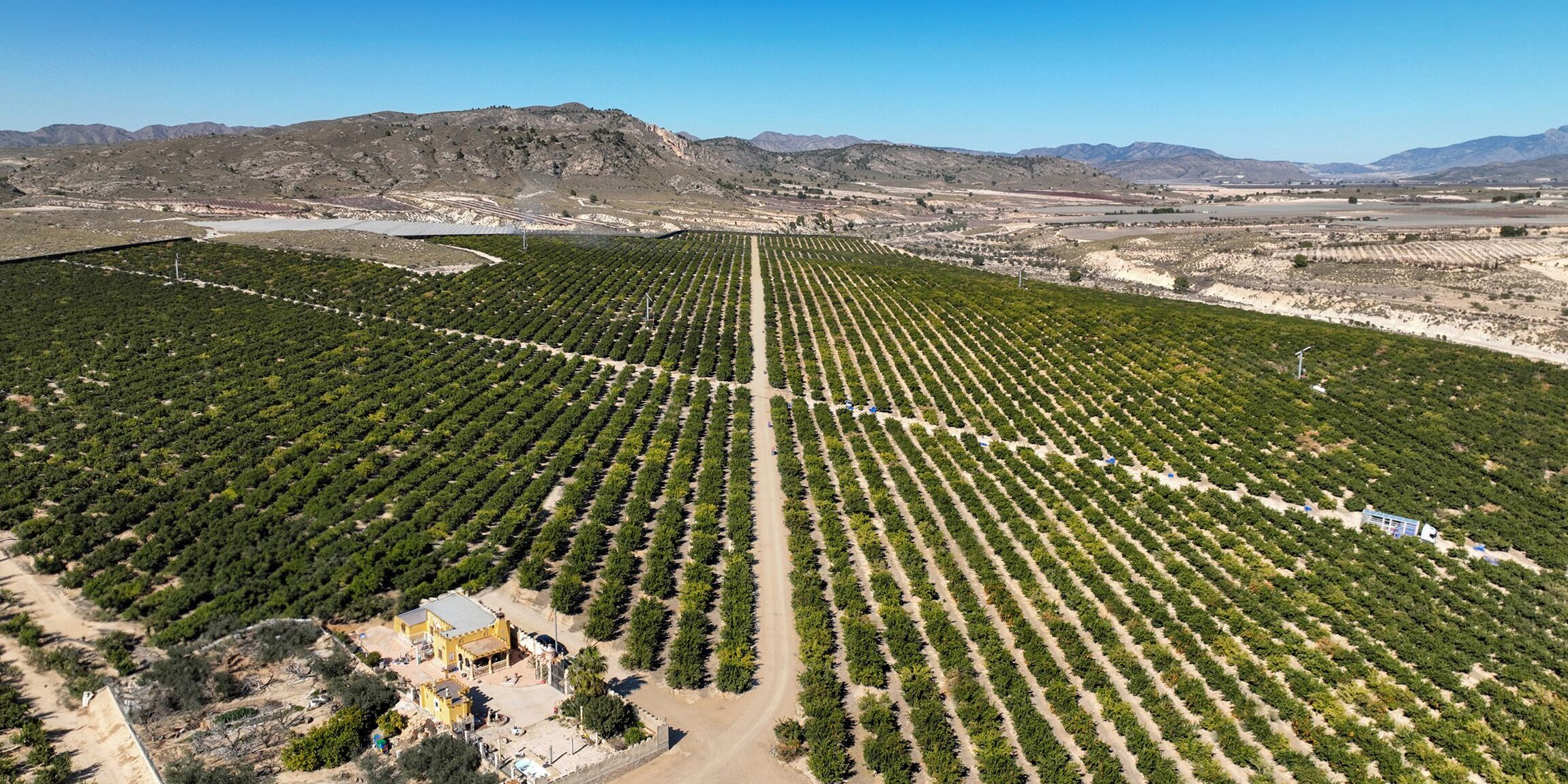• The platform starts with an initial contribution of 200 million euros from the bank and 50 million euros from Atitlan, aiming to double these resources to boost the sector in Europe, America, Africa, and Asia.
• It begins with Atitlan’s existing investments in 3,000 hectares of pistachios and another project of 5,000 hectares of grapes from Ecosac, the second-largest exporter of this product in Peru.
• Atgro will focus its investments on “superfoods” and a sustainable production model.
Santander and Atitlan have signed an agreement to create Atgro, a global investment platform that will take the form of a venture capital company dedicated to the development of agricultural projects. The company starts with a contribution of 200 million euros from the bank and another 50 million from Atitlan, although they expect to attract additional investors to reach a target size exceeding 500 million euros.
Atgro’s agricultural projects will be managed by Elaia, Atitlan’s subsidiary for its agricultural sector investments, in which Santander has also become a minority shareholder as a result of the agreement. Although it will not play an active role in the investments, the bank will contribute its extensive local knowledge in various regions and its commercial strength.
Since its first olive project in 2007, Elaia has expanded its crop base to include almonds, oranges, clementines, lemons, grapefruits, avocados, and pistachios in Spain, Portugal, and Morocco. This experience has made it a reference in planting and agronomic process management, with more than 20,000 hectares transformed.
This alliance between Santander and Atitlan reflects their long-term commitment to the agri-food sector, which is undergoing a transformation due to challenges such as climate change, demographics, and evolving consumer habits, all driving the shift toward a more scalable and sustainable production model.
Atgro plans to develop a broad portfolio of products (nuts and ‘superfruits’) and a diversified range of geographies (Europe, America, Africa, and Asia). The project begins with productive investments Atitlan already holds in pistachios and has just completed its first transaction, entering as a majority shareholder in the Peruvian company Ecosac, the country’s second-largest grape exporter, with a business volume of around 200 million dollars. Additionally, its growth will pivot around the development of new crops and the acquisition of productive assets.
Furthermore, the platform will be open to institutional and private investors, given the significant interest in this type of alternative asset, which has high economic and social impact and very low correlation with other traditional financial products.
The goal is for this financial platform to be classified under Article 8 of the EU Sustainable Finance Disclosure Regulation and to have a policy for designing and implementing ESG initiatives throughout the investment process.
Alternative Investment in Growth Segments
Santander’s participation in Elaia is part of the strategy of the Investment Platforms Unit (IPU), the unit within Santander Asset Management specialized in investment in growth segments alternative to the bank’s traditional activities, such as direct lending (Tresmares), private equity (Fremman Capital), venture debt (Atempo), Special Situations Lending (Deva Capital), or venture capital (Seaya, Mouro Capital).
This communication is an advertising communication. The product is under registration with CNMV, and once completed, the corresponding legal documentation can be consulted on the CNMV website (www.cnmv.es).
Grupo Atitlan was founded in 2005 by Roberto Centeno and Aritza Rodero. It is one of the most active business groups in the Iberian Peninsula, having invested over €1.5 billion across various productive sectors during its history. Its strategy is characterized by long-term investments in different sectors (agriculture, real estate, renewable energy, industrial/services, and financial), where it has extensive experience in value creation and generating positive social impact.
Banco Santander (SAN SM, STD US, BNC LN) is a leading commercial bank founded in 1857, headquartered in Spain, and one of the world’s largest banks by market capitalization. The group’s activities are consolidated into five global businesses: Retail & Commercial Banking, Digital Consumer Bank, Corporate & Investment Banking (CIB), Wealth Management & Insurance, and Payments (PagoNxt and Cards). This model allows the bank to better leverage its unique combination of global scale and local leadership. Santander aspires to be the best open financial services platform for individuals, SMEs, companies, financial institutions, and governments, with the mission of contributing to the progress of people and businesses by doing things in a simple, personal, and fair manner. Santander is making progress in responsible banking, with targets such as facilitating €220 billion in green financing between 2019 and 2030. In the first quarter of 2024, Banco Santander had €1.3 trillion in total customer funds, 166 million customers, 8,400 branches, and 211,000 employees.

